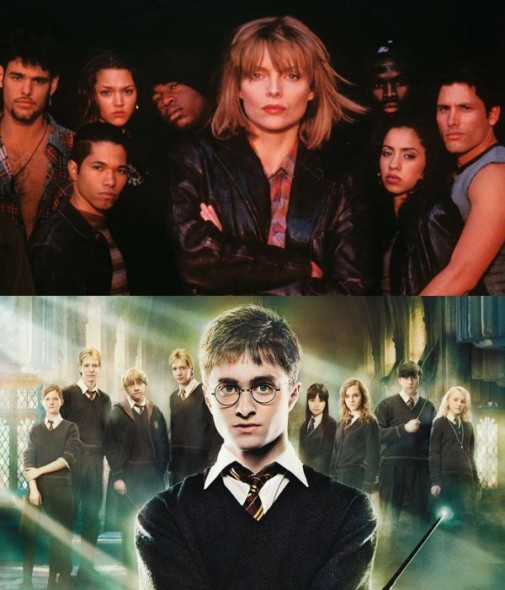
Guess which group is LESS likely to get into college?
(NOTE: Mild spoilers for the Harry Potter series follow.)
First of all, let me make this clear: if you want to learn magic, there is no better place than Hogwarts. That may seem like faint praise, since your only other choices are Durmstrang, which is borderline evil, and Beauxbatons, which is French. But Hogwarts really does seem to turn out top-notch wizards and witches.
That being said, I wouldn’t send my kid there if you used the Cruciatus Curse on me. (Okay, maybe then.)
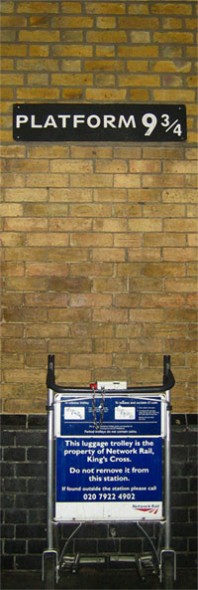 These are the classes for first-year students:
These are the classes for first-year students:
- Potions
- Herbology
- Defence Against the Dark Arts
- Transfiguration
- History of Magic
- Astronomy
- Charms
- Flying
That’s an amazing curriculum, absolutely. But consider what’s not on that list:
- English
- Math
- Science
- Music
- History of Everything Besides Magic
They don’t learn any of the three R’s at Hogwarts. In fact, they barely know the letter R. Perhaps we could compare it to a conservatory like Julliard: only the best and brightest are admitted, and the focus is narrow and intense. The difference is, Julliard is a college, meant for people who have already received a basic education. Hogwarts is a primary school, and in the Western world, it’s almost impossible to find a primary school with so narrow a focus. For instance, Stuyvesant is one of the country’s most competitive and prestigious math and science high schools. The large, large majority of the students there have every intention of seeking a career in the sciences. And yet, the school requires that they take English, Social Studies, and Foreign Languages.
And remember how I compared Hogwarts to Julliard? Well according to the Julliard website…
During the third and fourth years, students have latitude to pursue electives on such topics as art history, creative writing, the Black Arts Movement, the Harlem Renaissance, European history, film, the family, existentialism, and various philosophical traditions.
So even at the schools that pride themselves on specialization, they don’t completely neglect the other subjects. Why not? Partly, it’s to keep the students’ options open. Haven’t your career plans changed since you were 11? I wanted to be a professional Mario Kart player, but in retrospect, I’m glad they made me study English. Our education system is designed so that every career choice is available to you when you graduate from high school (grades permitting).
On the other hand, let’s say a Hogwarts graduate decides they’d rather not live in a closed society of wizards. Too bad—those poor kids don’t stand a chance of getting into a Muggle college. They’ve never had to analyze a piece of creative writing or solve a basic equation. Can you imagine how abysmally they’d do on the SATs? (Or whatever the Brit equivalent is.) Because of their unique education, they’re permanently cut off from 99.99% of human society.
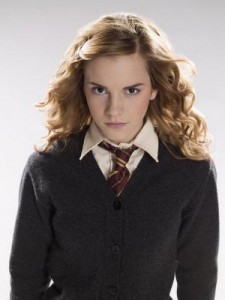
The only magic she CAN’T do is unbreaking his parents’ hearts. (And raising the dead.)
Consider for a moment what happens to Hermione Granger when that owl drops off her acceptance letter. Her parents send their only child off to a boarding school they’ve never seen, with a curriculum that disqualifies her from every job they’ve ever heard of. And when she gets back for the summer, she can’t even show them a single spell (students can’t use magic outside of school). J.K. Rowling was once asked how the Grangers feel about Hermione. She said, “They are a bit bemused by their odd daughter but quite proud of her all the same.” Bemused? They must have been devastated. Their kid is abruptly indoctrinated into a secret society they can never be a part of. Can their side of the family even be invited to her wedding?
When you get on that train to Hogwarts, you leave the human world behind… for good. The books portray that as an exciting thing; I say it’s a bittersweet journey, at best.
But it’s not just practical considerations that make a liberal arts education important. We don’t stop to think about it often, but this kind of curriculum is supposed to make us better human beings. Here’s what the Berkeley College website has to say on the subject:
To be liberally educated is to be transformed. A liberal arts education frees your mind and helps you connect dots you never noticed before, so you can put your own field of study into a broader context. It enables you to form opinions and judgments, rather than defer to an outside authority.
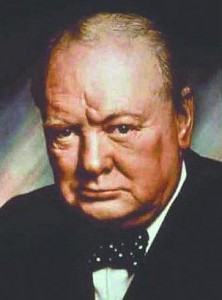
This will NOT be on the exam.
Not to mention that most people would consider knowledge worthwhile for its own sake. You know the saying about those who don’t learn history being doomed to repeat it? Well, the (mostly) British students at Hogwarts never learn the first thing about their country. In Love Actually, the Prime Minister extolls England as, “the country of Shakespeare, Churchill, the Beatles, Sean Connery, Harry Potter. David Beckham’s right foot. David Beckham’s left foot, come to that.” The only one of these things most Hogwarts students have ever heard of is Harry Potter. These are not well-rounded people (unless your worldview is so focused on magic that you consider someone versed in both Potions and Charms to be a real Renaissance Man).
Now contrast Hogwarts with a similar, yet completely different place: the Xavier School for Gifted Youngsters. (NOTE TO UBERNERDS: I’m talking about the School as depicted in the X-Men movies. The depiction in the comics has varied over the decades, and I believe originally all the “students” were adults and it wasn’t much of a school at all.)
When Wolverine first stumbles into Charles Xavier’s office, the Professor is lecturing a group of mutant children. Is he teaching them strategies for infiltrating Magneto’s secret lair? How to drive the jet? Advanced hand-to-hand combat (he’d be an awful teacher at this)? Not quite: “I’d like your definitions of weak and strong anthropic principles on my desk on Wednesday.” It’s a Physics class. Regular old Physics.
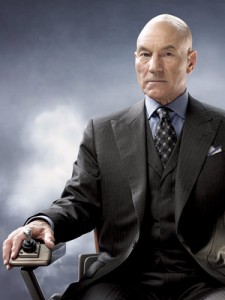
Don’t bother claiming the dog ate your homework. That ain’t gonna work.
Xavier’s school isn’t primarily about teaching mutants to use their powers. It’s first and foremost a school. Students also learn to control their powers, and some even learn to fight bad guys. But you don’t go to the Xavier School for superhero training. You go to get an education. Xavier wants to offer his students a choice: “Rejoin the world as an educated young woman or stay on to teach others. To become what the children have affectionately called X-Men.”
Xavier is a big fan of the human race. That’s something you certainly can’t say for wizards. Wizards, like Magneto, see humans as inferior. In fact, wizards seem to pride themselves on ignorance of the Muggle world. In Half-Blood Prince, Professor Slughorn asks Hermione about her parents. She explains they are both dentists, and no one in the room has any idea what she means. At Hogwarts, students learn more about the care of magical creatures than they do about the rest of the human race.
The ironic thing is, the ability to use magic arguably makes a liberal arts education more important, not less.
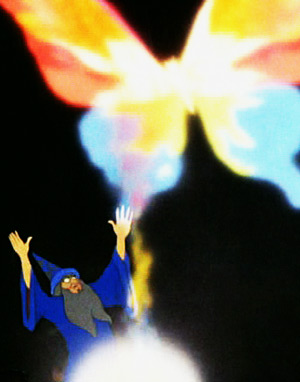
This man knows how to use magic.
I like to hope that if most of us were handed a magic wand (literally) that removed a lot of the drudgery of modern life, we’d use that extra time in cultural pursuits. We’d read more, write more, take a dance class, go backpack around Europe, etc. We’d produce magical three-dimensional movies, and paintings conjured out of our dreams. Magic would be a tool for knowledge and truth and beauty. And yes, I know that most of us would just watch more TV. But still: magic would (theoretically) give us the opportunity to devote ourselves to the liberal arts, or at least explore them more than our non-magical lives currently allow.
But for the wizards of Harry Potter, magic is an end unto itself. Consider the third book, in which Hermione is given a device that allows her to travel back in time. She uses it to take more classes. In other words, she uses magic to learn more magic. Why? So she can get a job working for the Ministry of Magic.
And you know what’s really sad about the Harry Potter books? Being a wizard or witch seems to be a pretty dull existence. No one gets to groom the once and future king of England for his destiny. No one gets their own island domain on which to raise their nubile daughter. No one gets to ride the world’s fastest horse. They do get to fight evil (a little). But as my friend Jordan Stokes put it, “fighting evil is like being in a rock band: a healthy way for young people to express themselves, sure, but not what you’d call a career path.”
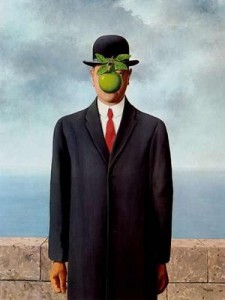
The glamorous life of a wizard.
Most wizards and witches become government bureaucrats. The Ministry of Magic is by far the largest employer in the wizarding world (Harry, Ron, and Hermione all work there eventually). Other vocations seem few and far between. Ron has a brother who works with dragons. There’s at least one newspaper you could write for. There are a handful of pro Quidditch players. But basically, wizards don’t seem to live interesting lives. For all their phenomenal powers, they have little choice but to work in a cubicle, probably decorated with magical moving Dilbert comics.
But maybe this is a chicken/egg problem. Does Hogwarts teach only magic because the wizarding world doesn’t seem to care about anything else? Or does the wizarding world only care about magic because its schools don’t teach anything else?
Of course everyone wants to work for the Ministry, for the same reason all Spartan children want to be soldiers. That’s all they ever know. And like Sparta, wizard civilization is the poorer for this. Maybe it’s not a coincidence that you don’t hear about any great wizard artists–wizard children never learn about art in school.
They have libraries full of books, but all of them are about magic. If there is a wizard equivalent of J.K. Rowling, we don’t hear about her. And I wonder, when tragedy strikes (as it often does at Hogwarts) how do they console themselves? They don’t know any comforting poems. They don’t have any stirring symphonies. All they have is Quidditch.
And Quidditch, while awesome, is poor soil to base your whole culture on.
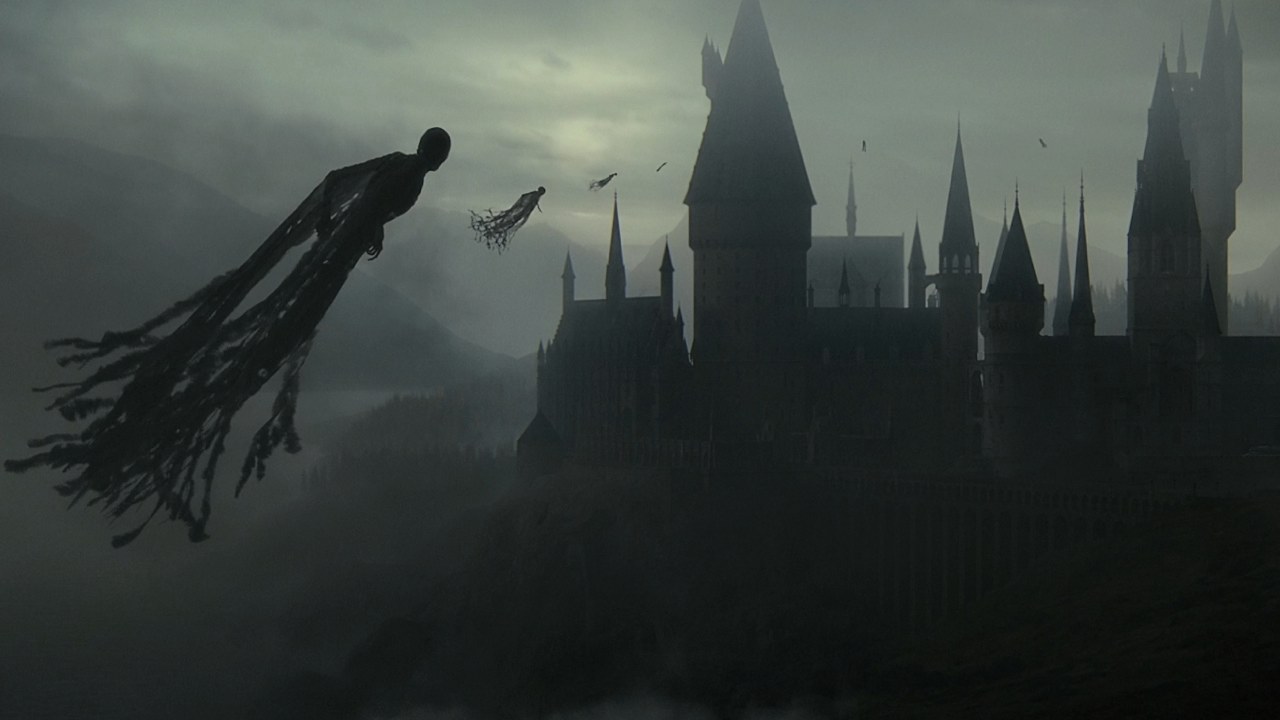
I’ve often thought it a shame that the wizarding world is so lacking in grief counselors. It would have saved a lot of wear and tear on the capslock key in book 5.
For some very quality legal overthinking of harry potter, see “Harry Potter and the Half-Crazed Bureaucracy”
http://www.michiganlawreview.org/archive/104/6/Barton.pdf
I could be wrong about this, because I don’t think it’s addressed directly in the books… but I always got the impression that not *all* wizard children went to Hogwarts (or Durmstrang, or Beauxbatons.) It’s supposed to be a sort of magic-using magnet school; after all, everyone’s always so excited to get their letters, as though there’s a chance they might not. I think it’s not that wizards ONLY care about the Ministry of Magic, etc… but that kids wouldn’t bother going to Hogwarts if they didn’t have that career path in mind. I think that any kids who left Hogwarts and *didn’t* work for the Ministry were the kids who only went because their parents pushed them.
(interesting side note – Fred & George didn’t seem to need any business, or even basic arithmetic!, classes to make their joke shoppe a success… maybe Hogwarts doesn’t teach any other classes because once you know enough magic, you can use that to solve problems that Muggles would need to apply the liberal arts towards?)
As a magnet school, the structure is a little more realistic. It’s been a long time since I’ve seen Fame (the tv show; I don’t think I’ll bother with the movie) but I think they were a bit more focused on the arts. Also, have some friends from college who went to a math-and-sciences magnet high school… and although there WERE other classes, they were rather cursory and certainly not taken seriously. I believe they had one class, that wasn’t even required every year, that was English and History lumped in together.
I think the bigger problem with Hogwarts is the teachers. Although I love these books when taken at face value, I get ridiculously angry whenever I allow myself to overthink them. The main reason is, Harry Potter himself is a 2nd rate douche who would’ve been dead in the water were it not for the help of his more intelligent friends and the EXTREME LENIENCY Of his professors. They let that kid get away with anything, just because they LIKE him. He cheats, he skips class, he does whatever the hell he feels like, and he’s worshiped. He’s got luck, and that’s about it. He’s not smart, like Harmione; he’s not charming like Ron. He’s good at Quiddich; he’s the perfect stereotype of the sports hero who gets a free pass on everything… but he’s the hero of the books!Everything hard is done for him. He’s as bad as the insipid heroine of that Golden Compass/His Dark Materials book (I only read the first one) – she’s a revolting heroine, because what lesson does she teach the reader? “Lie through your teeth, and be good at it, and you’ll do fine!” That’s a real shitty lesson for kids, and so is the Harry Potter “Get the right people on your side, then sit back and be adored!” lesson. Ugh.
I’m liking the Percy Jackson books, which will probably always be considered “Harry Potter with Greek Gods instead of magic” which is unfortunate, because they’re better written, have more moral and philosophical meat to them, and are more historically accurate… AND the characters live in the real world and go to REAL schools most of their lives… their “demigod school” is just a summer camp. Percy Jackson would kick Harry Potter’s arse.
Insular xenophobic society with strict laws, government-controlled news, little culture, every working adult in the employ of a massive government that’s been in a generation-long state of war with a force considered to be pure evil.
OMG
Harry Potter = 1984
Minor quibble! Durmstrang and Beauxbatons are not the only alternatives to Hogwarts. I’m pretty sure there’s an American school, though it’s only mentioned maybe once, and in passing.
I’ve also got the impression that Wizards have their own symphonies and sonnets (at the very least, they have their own pop bands). And they definitely have literature: what about The Tales of Beedle the Bard?
If I recall, the foolish and bumbling Defense Against the Dark Arts teacher in book two was also famous for his novels, which were supposedly autobiographical, but later proven to be stolen/fictionalized.
So yeah, I think there is an implication that there is at least somewhat of a literature community in the Harry Potter magical world.
I always wondered what schooling options were there for young wizards who weren’t old enough to attend the major boarding schools. I mean, were they all home schooled? Was there also magical elementary school where they had basic math, spelling tests, and so forth?
That said, the overall disdain for muggle studies and affairs does seem to be a pervasive and dangerous worldview of the wizards and witches of the Harry Potter world.
Some of this may already have been said in the above comments, I didn’t read them carefully.
A few of your facts are wrong. Hogwarts isn’t a primary school, it’s a secondary school… wizard children will already have learned how to read and write at home, with their parents. And the reason we only hear about people working at the MoM is because it’s pretty central to the story… but there are plenty of other jobs. Who’s to say there are no wizard artists? They’re not very important to Harry’s story, so we don’t hear about them. Harry Potter isn’t a wide ranging and objective description of a whole world, it’s a story about one boy. Do most other “coming of age” stories explicate the entirety of our history and culture? Of course not, so why would Harry’s explicate the entirety of HIS history and culture?
Also, responses to the bits of the comments that I did read:
@Lisa: hahahah. So true.
@Genevieve: That is definitely not the lesson that /I/ got out of reading Harry Potter OR the Golden Compass. I think that’s a pretty cynical opinion of the books and/or kids’ level of understanding.
Paige, I’m pretty cynical in general, so that’s undoubtedly true. That said, I *do* really love the Harry Potter-verse, despite not actually caring too much for his character, and not letting myself think too hard about his circumstances. I just really hate the fact that, despite being a bit of jerk, Draco had some really cogent points to make about the preferential treatment that Harry received from his professors, which were never treated seriously by the other characters – and presumably not by the author, either – just because he was the “bad guy” and Harry the untouchable hero. Still, the positive elements of the story tend to outweigh that (though I stand by my argument that the Percy Jackson books are superior.)
As for the Golden Compass, well, I will admit that if the book had held my attention well enough to get me to read the sequels, I might have found something to challenge my perspective… but from the first book on its own, there was not a single redeeming characteristic about the heroine. It is definitely not a book I would encourage my children to read. All she ever did was lie, and all she ever got was rewarded for it. That was pretty much the crux of her character: “How can I use deception to get me out of this jam?” I couldn’t muster up even an ounce of sympathy for her.
@Genevieve – Okay, I did a little digging on the question of other wizarding schools, and I found some interesting things.
Believe it or not, J.K. Rowling says on her official site that ALL magical children in England go to Hogwarts. There may be schools in other countries, but Hogwarts is it for the U.K.:
http://www.jkrowling.com/textonly/en/faq_view.cfm?id=91
In another interview, Rowling says that Hogwarts has about 1,000 students:
http://www.accio-quote.org/articles/2000/1000-scholastic-chat.htm
That means there are about 140 magical children born in England per year, period.
And sure enough, it turns out that in Rowling’s mind, there are only 3,000 wizards IN ALL OF ENGLAND:
http://www.accio-quote.org/articles/2005/0705-tlc_mugglenet-anelli-2.htm
I think most people would be kind of shocked at that number – I always kind of figured there were tens of thousands of wizards. I mean, doesn’t it seem like the Ministry of Magic ALONE employs 3,000 people? (But Rowling also says in the same breath that she really hasn’t thought it out extensively.)
On another note, I agree that Harry doesn’t seem to be an extraordinary wizard (besides his gift for flying). But I think that’s one of the series’ charms. He’s an average kid, like a lot of his young fans. But he works hard, shows courage, tries to do the right thing, and stays true to his friends. He’ll be the first to tell you that he survives a lot of his adventures by sheer dumb luck and the sacrifices of others. But hey, so does Frodo, right?
It’s true that bureaucrats outnumber artists in the Potterverse, but isn’t that true of life? I wouldn’t say there’s no artists. You hear about famous musicians in the books, and there are obviously craftsmen and shopkeepers and writers. But like in life, they are a small part of the population.
@Alexandra: There is an American school mentioned in Salem, MA
Some of these comments are along the lines of, “There MIGHT be tons of wizard art, literature, and music that we don’t know about.” Sure, there might be. I’m pretty sure if you asked J.K. about it, she’d say there was. But the books themselves, over hundreds of thousands of words, manage to tell us a lot about wizards while mentioning almost zero wizard art.
I mean seriously: don’t you think over hundreds of years, wizards would have developed some pretty mind-blowing forms of self-expression? You think Hollywood movies are impressive? A wizard could probably put you right in the middle of the greatest car chase you can imagine.
J.K. Rowling is, without a doubt, fantastically inventive. And yet on the question of how wizards spend their free time, she doesn’t give us much. We know they don’t have TVs, movie theaters, computers, or iPods. Presumably, they sit around talking a lot more than we do. Nothing wrong with that. Still, I’m a little disappointed that the subject of wizard entertainment doesn’t come up more in the books. It seems like there’s a lot of unexplored territory there.
Amanda Marcotte reads overthinkingit.com!
Jealous!
@Roxie – You’re referring to the “Salem Witches Institute.” If I had to guess, I’d say this isn’t a school for children. An “institute” is usually a place for advanced research. In my mind, the Salem Witches Institute is where they work out cutting-edge new spells.
But perhaps the Salem Witches Institute is affiliated with a larger, more general school. Sort of like the Institute for Advanced Study is based out of Princeton. Okay, I’ll shut up now.
Astronomy is a science… and herbology could potentially have a bit of science involved, although that may be a bit of a stretch…
Sure, students of Hogwarts are unlikely to receive a thorough understanding of the scientific method, etc, but then it’s probably not all that important if you can use magic to do things that mess about with the laws of physics.
As far as history goes, I look at the wizarding world as being sort of like a separate country to the one that muggles live in. It’s pretty commonplace for schools to teach the history of their own country at a greater depth than that of other countries. Particularly when the two ‘countries’ have fairly poor relations, such as seems to be the case between wizards and muggles. Rather than being a failing of Hogwarts, I see it as a reflection of ‘foreign relations’, if you will.
I went to a series of British boarding schools from the ages of 8 to 18, and I can point out that they are terribly insular places, and you very rarely meet anyone from outside that world. This situation would, I imagine, be exascerbated if you were already part of a secret society.
One of the things that has always stuck with me throughout the depiction of the Wizarding World throughout the books and movies is how dated it all seems. Their fashions, arcitecture, and general lifestyles appear almost Victorian, and I would say that the latest there culture hits is around the 1950’s. Britain up to the 50’s did have a fairly rigid and class-bound educational and vocational system, and this may be doubly so for a culture, such as Wizardry, on the brink of extintion. Given the massive social and technological upheaval in the decades following the 50’s, I would say that the Hogwartian world is due a Revolution.
Re: Wizard Art- Just a small, nitpicky point. Hogwarts is filled with wizard paintings, so again, an allusion to a broader artistic culture that just doesn’t get explored in the books because Harry is uninterested. And the Weasleys provide lots of references to wizarding popular culture through Molly’s little homemaking quirks (her radio, magazines, cookbooks, etc.).
I’ve actually had this conversation a few times with my own friends, and, honestly, the comparison to Xavier’s school came up with us, too. Comparing him to Dumbledore is a ripe topic/tangent, but the basic difference is one you bring up between the schools: even though both try to create acceptance and understanding and tolerance for regular humans whenever the subject comes up with students, Xavier’s overall philosophy is one of integration while Dumbledore’s is one of isolation.
@Matthew: OMG. You totally outgeeked me & I LOVE IT!
OH, btw JKR is on twitter now http://twitter.com/jk_rowling
Harry Potter and the magical apartheid.
I was especially intrigued by the reference to Ron learning how to drive in the epilogue to Deathly Hallows. The conversation struck me as hinting at a much bigger adult story that JKR wasn’t quite ready to tell yet: Harry & friends leading / modeling the way towards a healthy (i.e., with wise restrictions) reintegration with the Muggle world. The way the other three reacted to it made me think that they already had their licenses and Ron was just a bit late in catching up. It would make sense that he’d resist that sort of lifestyle change the most: Hermione and Harry would take to it immediately and Ginny would tackle anything and probably pick it up quickly, especially if she believed it was the right thing to do.
Think about it: if Harry really wanted to stop someone like Voldemort from ever coming to power again, he’d have to attack the basic social fabric that permitted the rise in the first place. I can see him eventually taking a long view (once he gets a close look at the Ministry of Magic from an adult’s inside perspective) and adopting the Next Big Challenge of his life. He’s not the sort of person to shrink from what he sees as a big challenge, if he thinks it’s the right thing to do. And he’d probably spend all of his social capital as the hero of the wizarding world to do it.
I just hope JKR has an adult series in mind and it runs along these lines. She could point at exactly these kinds of significant weaknesses in wizarding society and deconstruct the very world that she created…to build something far richer, deeper, engaging, and reflective of both the wizarding AND Muggle worlds. There would still be plenty of opportunity for magical battles: I’m sure there are people on both sides of the fence invested in keeping the status quo. Plus, convincing people that a careful reintegration is healthy (the ostensible goal) wouldn’t be as clean a win as defeating Voldemort. It solves one set of problems and opens them up to a whole new set. It could be like peeling back an onion…fascinating. If she’s as insightful and biting in her commentary on this sort of topic as she was in her children’s series, it’ll be awesome.
One can only hope. :)
The underlying premise of the “Wizarding World” is that wizards have powers above and beyond the Muggle world. They have separated themselves from that world because 1) It would be too tempting to try and rule and dominate it and/or 2) the limited number of wizards would become enslaved to unending needs and problems of the muggles. In any case, past encounters have ended badly for wizards.
Much of the Ministry of Magic’s mission is to regulate the border and interaction of Wizard world with the Muggle world, dispatching crews to clean up problems (memory charms, etc.).
There are also limits to Wizarding. There are degrees of power which may or may not be based on wizarding knowledge, and the Ministry probably has to deal with regulating relations within the community. Wizards may fail to inherit powers from their parents (squibs). They can’t create resources out of whole cloth – in Book 7, Hermione notes that wizards can multiply food, but they can’t create it out of thin air.
Regarding Hermione’s parents. It is noted, at length, that Harry’s powers manifested themselves in uncontrolled ways through his childhood. Tom Riddle similarly discovered his own powers, but started directing them early. While not discussed, it can be presumed Hermione experienced similar problems, and Hogwarts presented her family with both an explanation and a means of control.
And you missed a subject: Numerancy – presumably mathematics – is mentioned, but there have been no scenes in that class.
p.s.: Wizards don’t have perfect control of their powers. There is one scene of a line of wizards seeking treatment for failed or improperly applied spells at St. Mungo’s “ER”, and Luna Lovegood mentions that her mother died to a failed magical experiment.
J.K. Rowling is, without a doubt, fantastically inventive. And yet on the question of how wizards spend their free time, she doesn’t give us much.
While I agree that the books are pretty good, I disagree that they were “fantastically inventive” in any way. It’s a mish-mash of every fantasy book every written with a sprinkle of 1984 and Nazi-ism. Was there any original interpretation of magic in any of the seven books? The reason you don’t see any of the stuff you mentioned is because it’s not been already written by someone else.
And her definition of how people perform magic is somewhat ridiculous. Like — what is the nature of wands? Why are wizards powerless without them and why can’t regular people use them? Can regular people mix potions if they knew the recipe since it’s just ingredients.
But its not a primary school. Its a secondary school. They’re 11 when they get there and the pens can write for them
@VAroh – You’re right. I always thought secondary school was high school, and anything before that is primary school. Turns out that’s not the case. Doesn’t change my argument, though. 11-year-olds should still be getting a general education. There will be plenty of time to learn magic after they learn algebra.
You forget they’re 11 when they go to that school.
That’s roughly the equivalent of getting up through the 8th grade, maybe the 7th. This means they have SOME versing in Math/English/Science/Etc.
D28108: Read Belinkie’s latest comment for the words of the author. Since I totally agree with his point, I’ll put in my two cents. I suppose a comparison to average British eleven-year-old English (language), math, science, history, etc. comprehension to that of Americans of the same age could give some insight as to whether it would or wouldn’t be more feasible in the UK than the US to cut off the basics at that age; but I find it hard to believe the education system in the UK is *that* much more accelerated than in America, and American students would definitely be set up for failure if they didn’t keep learning those basic subjects after the 8th grade, if only because they’d be out of practice for so long before being of the proper age to enter the workforce/ move out of Mom and Dad’s house.
I feel kind of funny arguing this, but Muggle Studies covers most of that. It’s from a Wizarding perspective, but it’s there.
Plus, I’d imagine things like math and English would be included… sort of like immersive learning. Potions is chemistry, which you need math for, and they do have to write a lot.
Stuyvesant FTW~! W00t! I had fun there – would’ve liked it more if there was the occasional (legal) potion involved tho…
The thing that REALLY made me *headdesk* here is that you spelled “Juilliard” incorrectly every single time you wrote it in your post… although you did manage to link the website correctly. Sigh. I’ll try not to blame your primary school for that one.
@maliekai – [Googles] Yup, you’re right about that. My bad. Although maybe the “Juilliard” people just include extra vowels because they don’t study English over there.
It is a rather ridiculous word. Blame the French. :)
That’s somenthing that has always bothered me: A magical education leaves a Wizard or Witch unable to pursue a Muggle career path.
Which most Wizards and Witches probably don’t mind at all, since they are very insular and contemptuous towards the Muggle world; they probably feel that they don’t need anything from the latter, and if they do, they can get it with a charm spell (think of how they treated Mr. Roberts, the poor guy who owned the field were the Quidditch World Cup was held…).
However, what happens when you need somebody like Kingsley Shacklebolt? Working directly under UK’s Prime Minister isn’t something you can achieve without some serious (Muggle) education… I guess they could have used charms to fake his qualifications, and that he could use magic to make the other employees do his work for him, but, being able to fake all the degrees, cheat all the tests and fool all the background checks required to work for the PM would be a serious challenge for people who doesn’t even know what a dentist is, have trouble understanding a rubber duck and think that a man wearing a flowery dress won’t attract unwanted attention…
I mean, the cultural jump Shacklebolt was forced to make was like a person from modern US trying to pass for a XVI century’s Samurai…
I bet no one is going to see this comment, but I’ll post it anyway. I believe Memory potions are referenced several times in the books (They certainly exist, according to Harry Potter Wiki). Because of that, it would make sense if some version of this is used to memorize stuff like Mathematics and Physics. The stuff that can’t be memorized (Language Arts, Physical Fitness, some things in Social Studies) would I assume be learned in some other way. I have a feeling that there ARE classes like Language Arts, Math, Science, History, and other needed topics taught at Hogwarts, but they weren’t listed on the curriculum possibly because it would be assumed by parents and students that those subjects would be taught. That’s my theory, as the children learning those subjects before Hogwarts doesn’t really make any sense, as surely not all parents have adequate time nor the experience to teach their children all those subjects. As for why those classes wouldn’t be described, it’s purely just to further the plot. If J.K Rowling wanted to be as realistic as possible with her books, she would have had to describe each minute of every class, to prove (though we don’t need proof) that Harry, Hermione, Ron, and the others actually learn the spells that they use. Instead, she describes what’s taught at the time of each class less and less as the books go on because that would take up too much time and lower the appeal. Potions is basically just Chemistry that includes magic in it, Transfiguration would probably have some aspect of Science to it, Charms require a little bit of logic, which could tie into Language Arts (just barely), Arithmancy most definitely has Math, because you need Math to make sense of numbers (to even have numbers in the first place) and all the others tie into one of the “Muggle subjects” in some way, whether it be loosely or heavily. All except Divination, which is 90% guesswork, and the other 10% is making educated guesses based on current or prior factors. As for non-government jobs in Wizard Society, all I have to say is that even though democratic elections are referenced, if people like Fudge and Thicknesse (who was literally under the Imperius curse, which somehow no one noticed) were able to get into office and remain there for an unlimited amount of time, something tells me that the voters aren’t told much about the candidates or that lying is something common within the Ministry. If either is true, it means the government is heavily corrupt and leans towards authoritarianism. Reference the fact that in Order of the Phoenix, a full criminal trial is held for a minor crime committed by Harry, with seemingly no objection from the Wizengamot (which is pretty useless, its influence is almost never discussed). Also, J.K Rowling (no offense) doesn’t do a good job designing the government, unless that was intentional. Besides the Wizengamot, there are no proper divisions of power within the Ministry, though it has a bunch of departments, I don’t remember hearing about departments that deal with non-magic issues in society, which there almost certainly are. What about the Department of Public Works, the Department of Commerce, the Department of Worker’s Rights, the HEALTH DEPARTMENT?! There’s no FDA in Wizarding Society, that’s a massive issue (no wonder Spattergroit is still around, Cerebrumous Spattergroit sounds like it was created by wizards, but that’s a topic for another day…..). Wizarding society sounds like it’s based solely on every wizard or witch being isolated from Muggle society for his/her entire life, which makes no sense, as the position of Muggle Studies exists, as well as the job of Muggle Liasion. For instance, wizards and witches aren’t allowed to use magic outside of wizarding society unless they are in immediate danger. But how does the Ministry expect magical folk to survive in Muggle society if they can’t do the one thing that’s literally in their blood? The Ministry should NOT have that level of control over people. Not to mention that the fact they can interfere and influence Muggle society when they wish is not good. I sense a schism brewing in the Ministry, possibly in British wizard society as a whole…. (anyone know which series I just referenced?). In conclusion, if British wizard society (possibly all wizard society) continues on this series of bad paths, it is doomed to fail, either from civil war, disease (no Health Department), Muggles (we have weapons much more powerful then Unforgivable curses and could easily overwhelm wizards), House-elf and Goblin rebellion, or a combination of these factors. So, Hermione, better start learning Muggle subjects quickly!